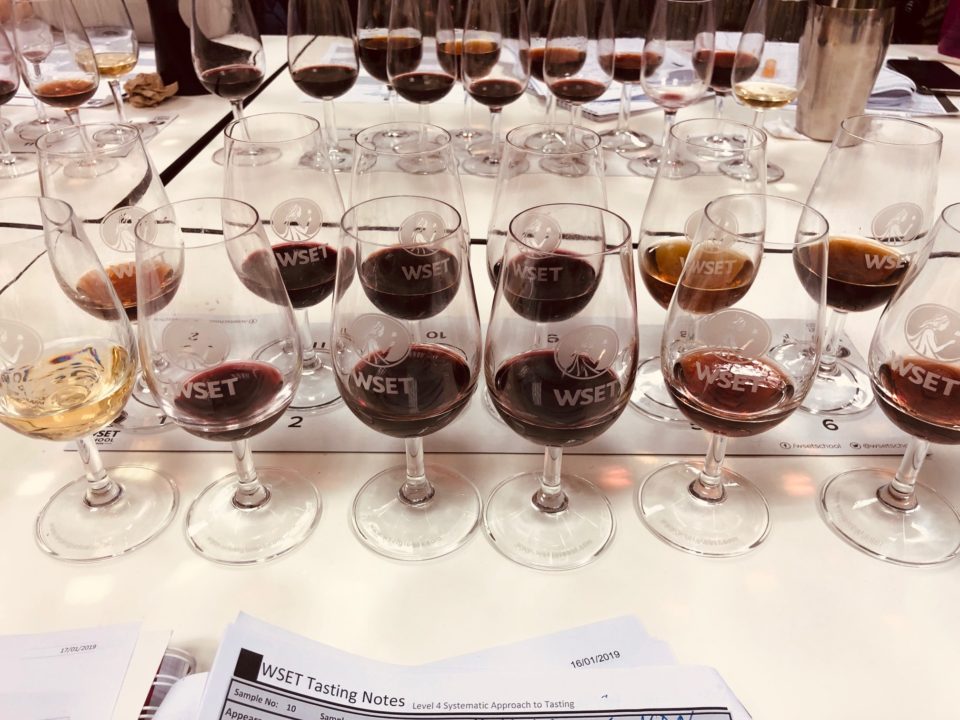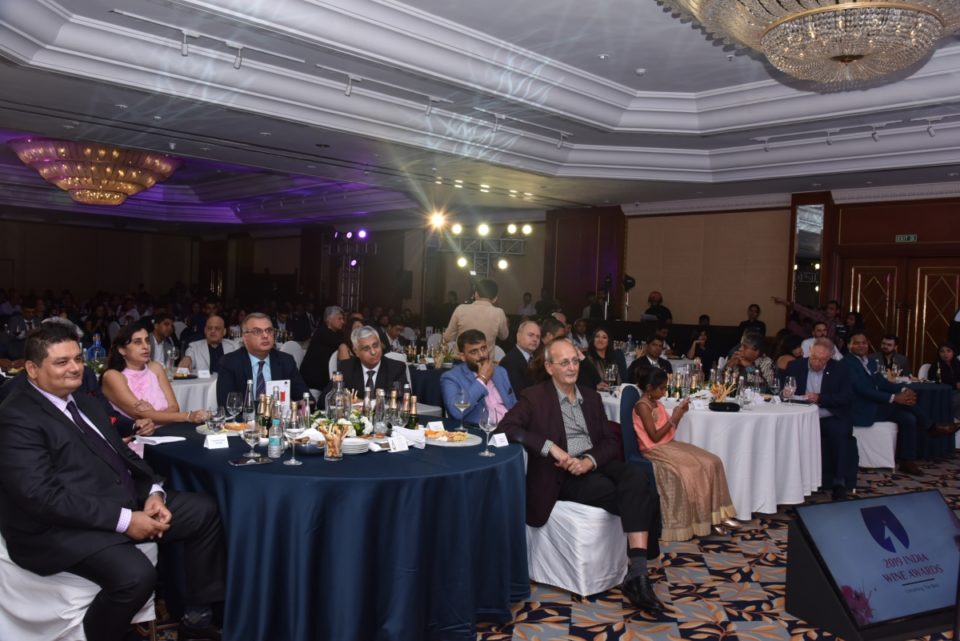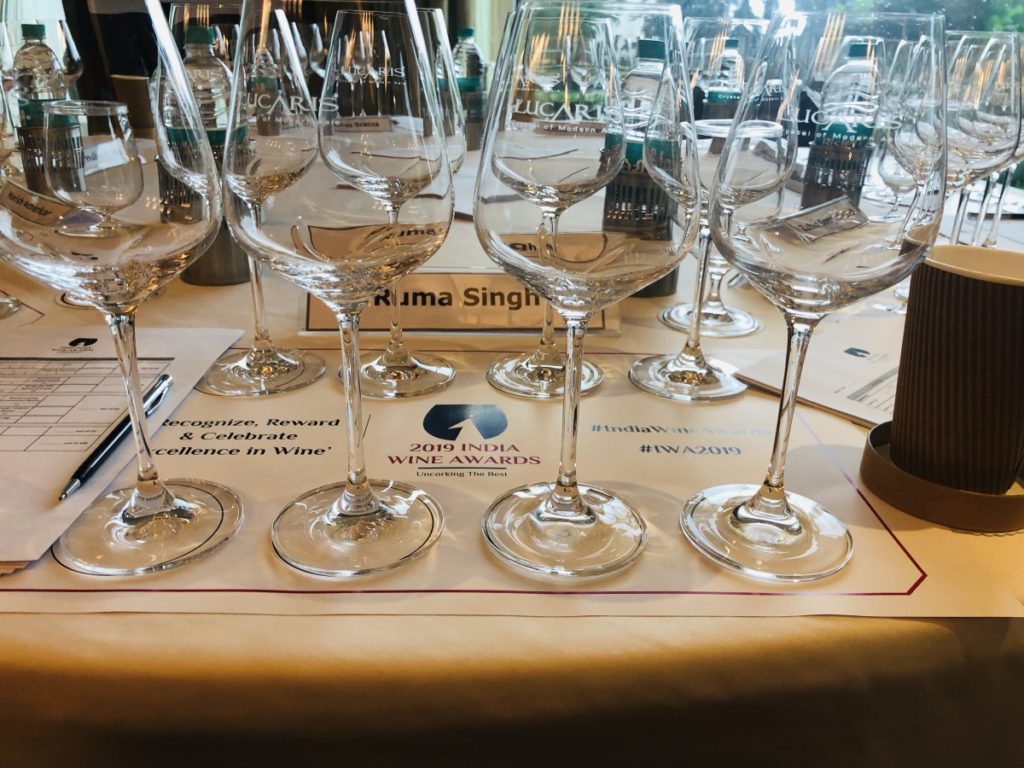What is new with the WSET, the largest wine and spirits school in the world? A major syllabus re-jig and new courses to cater to the rapidly-changing world of alcoholic beverages, says CEO of the WSET, Ian Harris who was in Mumbai for the India Wine Awards a while ago. And yes, India is growing as an education hub…
In its 50th year, the WSET (the Wine & Spirit Education Trust) has released data that states that in 2018-19 a total of 108,557 candidates took a WSET qualification, breaking the 100,000 barrier for the first time.
Here are some more facts:
In its newest syllabus change (from August 2019), the WSET now has 3 separate subject streams – wine, spirits and sake. Spirits, originally clubbed together with wine, now has its own syllabus and qualifications, and is topping the numbers chart with +33% over last year.
So who are these students of wine, spirits and sake? Besides professionals working in the international beverage industry, a slew of interested enthusiasts are also signing up to take courses with the WSET, the global organization which provides wine and spirits education in the world.
In India, despite tough taxes, the interest in wine and spirits is steadily growing against all odds, with APPs (approved providers) offering Levels 1, 2 and 3 of the WSET qualifications. The numbers have been sufficiently interesting to bring Ian Harris, CEO, WSET to India to partner with Sonal Holland MW in her third edition of the India Wine Awards in a series of pre-event masterclasses.
On the sidelines of the excitement of the India Wine Awards, Harris found time to answer some of my questions.
Read to understand what the WSET is offering in India, and why Harris is so pleased with the growing Indian interest in wine.
The WSET has been making significant changes in its curriculum, separating spirits from wine, adding saké and much more. Why did you decide to make these changes at this given point in time? And given the rapid changes happening in the world of wine (new regions, new grapes, changing climate) how often do you anticipate changes in the curriculum in future?

Ian Harris, CEO of the WSET at the India Wine Awards 2019
We took the decision to split the qualification into three product streams – wine, spirits and sake, mainly because we have a lot of people who did our qualifications who were just interested in wine but had to study spirits, even though this might not have been part of their jobs. And also, people who pursue wine aren’t necessarily spirits consumers. So we took the decision that if we were going to teach spirits properly, we needed to have spirits qualifications at every level. We already had Level 1 and Level 2, but when we split the qualification, we took spirits out of the wine qualifications of Levels 2,3 and 4.
We have just launched in the first of the Level 3 qualifications in spirits which includes Asian spirits, like Baiju and Shochu because there is a growing group of people who want to learn about spirits of the world, particularly people who work in bars around the world. We took that decision about a year ago.
We look at our qualifications about every 3 to 4 years, and we would change the syllabus if necessary to reflect the global market and the new wines and spirits coming into the industry.
The WSET has announced a record number of enrollments in its courses in the last calendar year. Do you feel the curriculum changes have contributed in any way to the rise in interest in the WSET qualifications?
When we introduced Level 1 qualifications – we introduced the Level 1 in wine in 2003 and Level 1 in spirits in 2009 – that really opened by WSET qualifications to people who may not have been able to afford the higher qualifications or didn’t need the higher level of knowledge for their jobs. So one of the big drivers of our growth – and last year we had over 100,000 students in 12 months – has been the growth of Level 1 qualifications, which are aimed at people just starting out in the industry or people who just need the basic knowledge of either wines or spirits or sake.
If you had to pinpoint several significant trends in the beverage world you feel of importance to students and watchers of the alcoholic beverage industry, what would you say they were?
I think the most important trend in the beverage world is that people are appreciating that if they spend a little bit more (on education), they’ll be able to open up a whole new world of different wines and indeed, different spirits. The significant trend is that people are more willing to try different products, to experiment, and that is helped very much by people who are working in restaurants as sommeliers or behind the bars as bartenders or mixologists. That trend has been helped by the education of these industry people, and indeed the consumer who is going into those bars and
restaurants. The more knowledge they have, the more they are prepared to
experiment.






